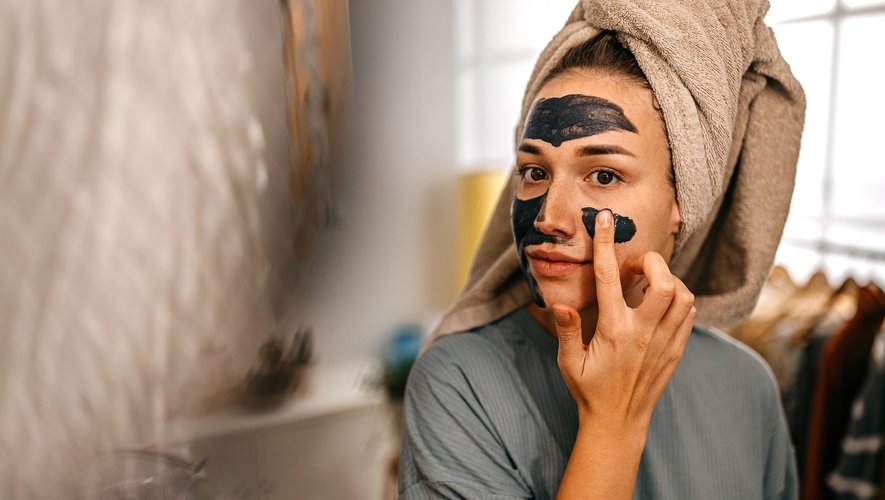(ETX Daily Up) – Donations to associations fighting against poverty and precariousness can take different forms, from food to hygiene and clothing. But what about cosmetics, those not intended for functional but aesthetic needs? Often considered superfluous, if not secondary, they are in fact essential for improving self-esteem and the view of others, but also facilitating social and professional integration, as revealed by a new study carried out among several hundred beneficiaries of associations.
A hair mask, a coloring intended to conceal gray hair, foundation, mascara, or even lipstick… These beauty products may seem trivial or accessible to some, but they represent a rare commodity for those who who are forced to make choices on a daily basis. People in precarious situations, forced to choose between toothpaste and moisturizer, have no other alternative than to consider these beauty products as secondary, just like many companies that make donations to associations, and yet… These cosmetics are essential on many levels, particularly personal, relational, and societal, and allow you to look more serenely towards the future.
The Agence du Don en Nature and the FEBEA, the trade association for the cosmetics sector, have conducted, in collaboration with the research firm PRS In Vivo, a qualitative and quantitative study with beneficiaries of associations to determine the social utility cosmetics, hygiene and beauty products, and better understand the habits and needs of people in precarious situations. The whole aim is in particular to make as many people as possible, donors and public authorities, aware of the importance of beauty, often considered superfluous, in the daily life of the poorest.
Priority to vital needs
And the latter are the first to claim it, since 83% of them consider that this access to a greater number of beauty products would allow them to improve their self-esteem. An essential thing to approach one’s strengths and values with objectivity, and to look (more) serenely towards the future. However, people in precarious situations are forced to neglect these purchases on a daily basis, and for good reason, their priorities concern other areas a fortiori. Their vital needs, namely food, shelter, and protection of their family, are paramount, and come before the needs of esteem, accomplishment, and belonging. “They make choices. Between buying food for the evening and buying an intimate soap, they will favor food”, underlines a social worker who participated in the study.
Another factor to take into account: children, who are the first priority for these men, and even more so for these women – 83% of single-parent families are women, and one in three single-parent families lives below the poverty line – as the study reveals. A fortiori, the needs of children also come before their own. Something that helps to eclipse their status as women from their minds. This survey shows, however, that access to beauty is essential in terms of expression, self-esteem and confidence, factors which allow “to reinforce [leur] sense of belonging to society”, which is also an essential lever.
Self esteem vector
As such, perfumes appear to be the main beauty products promoting self-esteem. More than three quarters of women (78%) mention them as having a strong impact on this plan, ahead of hair products (70%), moisturizing creams for the face and body (62%), and make-up in overall (51%), including eye products (38%), lipsticks and lip balms (30%), and foundations and powders (29%). Products which, according to the statements of the main interested parties, play a major role on a personal, relational and societal level. “I regained my self-confidence, I realized that I also had the right to want to feel beautiful”, explains a beneficiary of an association. Another says: “It helped me to reach out to others, to no longer be ashamed and daring”, while a third evokes the impact of cosmetics on professional integration: “It’s important to be prepared for a job interview, we want to make a good impression”.
Faced with these needs, some associations have set up socio-aesthetic workshops that allow accompanied people to manufacture products, obtain advice, and participate in make-up sessions, among other things. An experience that sounds like an awareness for many beneficiaries, as one of them explains: “I was not aware of how much I had abandoned myself, it was a real electric shock for me. “. But these workshops are also synonymous with confidence, learning, well-being, and a sense of equality.
So many observations that testify to the importance of encouraging the donation of cosmetic products, whatever they are, but also of proposing an offer that corresponds to the needs of people in precarious situations, and of promoting transmission and learning. through workshops of all kinds. “They are women like the others who have the right to feel beautiful”, concludes a social worker.
*This study was carried out between July 2022 and April 2023 with 420 hosted and non-hosted interviewees, adult population aged 18 and over, all beneficiaries of associations. The interviews were carried out by volunteers.

